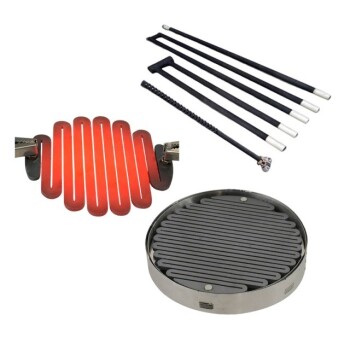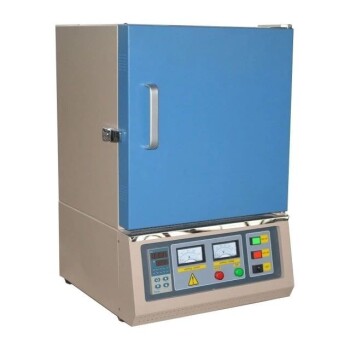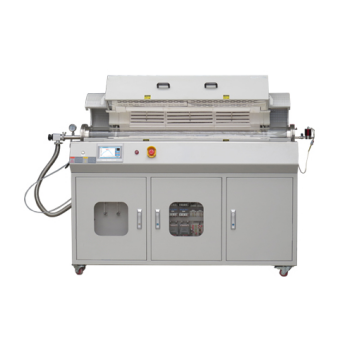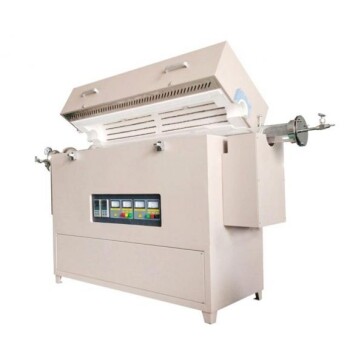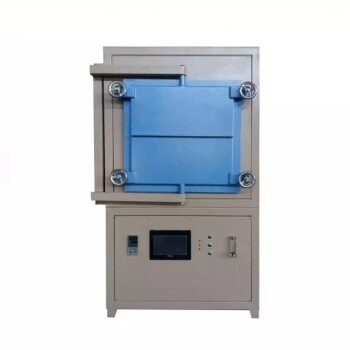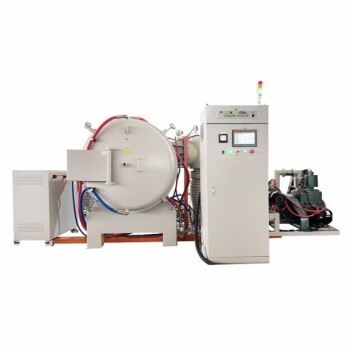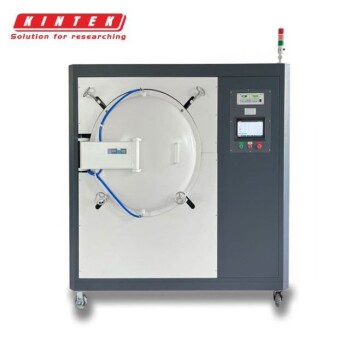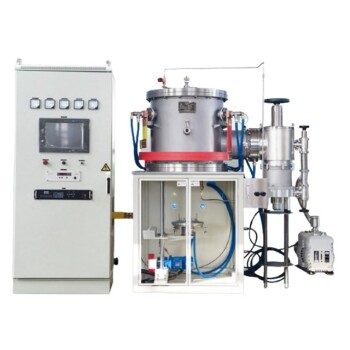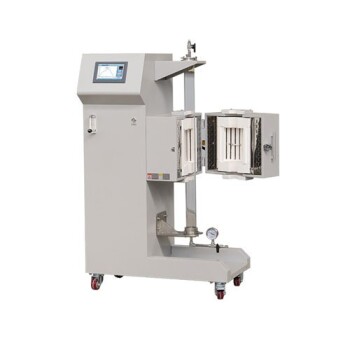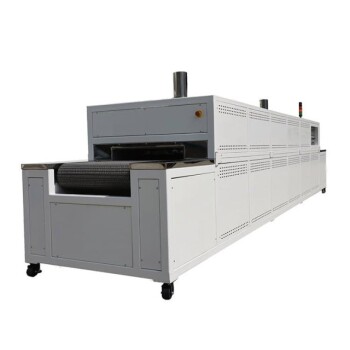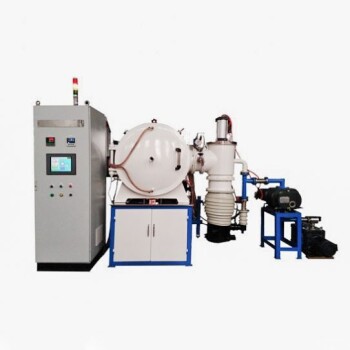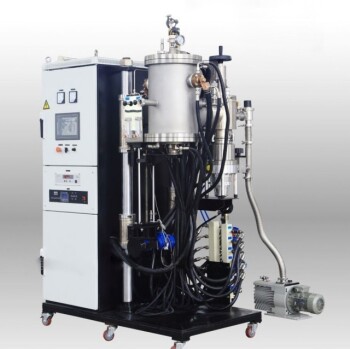In short, nickel alloys are the premier choice for industrial heating because of their unique combination of three critical properties. They maintain exceptional strength at extreme temperatures, exhibit superior resistance to both oxidation and chemical corrosion, and remain stable and durable through repeated heating and cooling cycles.
The suitability of nickel alloys isn't just about withstanding heat. It's about their ability to maintain mechanical integrity and predictable performance in chemically aggressive, high-temperature environments where most other metals would rapidly degrade and fail.
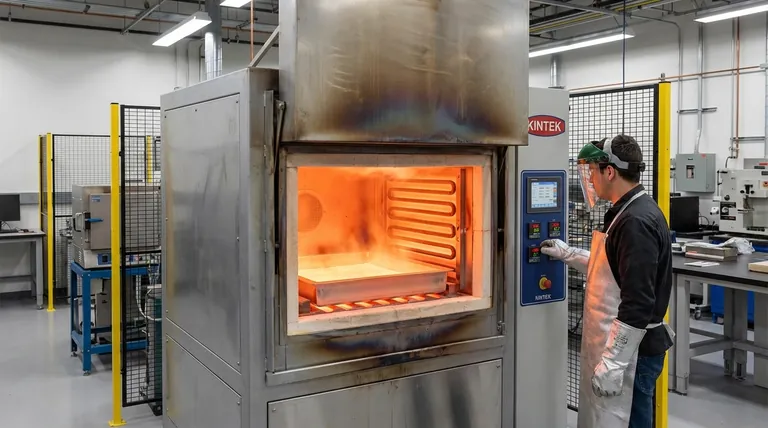
The Challenge of Industrial Heating Environments
To understand why nickel alloys are specified, you must first appreciate the brutal conditions inside industrial heating equipment. These environments present a multi-faceted assault on materials.
The Dual Threat: Extreme Heat and Chemical Attack
Industrial processes, such as those in furnaces or chemical reactors, often involve more than just high temperatures. They can include corrosive combustion byproducts, process chemicals, or specific atmospheric conditions (like carburizing or nitriding) that actively attack metal components.
The Problem of Oxidation
At high temperatures, most metals react with oxygen in the air. This process, oxidation, forms a layer of scale on the material's surface. For common steels, this scale is often flaky and porous, offering no protection and leading to rapid material loss and component failure.
The Stress of Thermal Cycling
Heating elements and furnace components are not held at a constant temperature. They undergo thermal cycling—the repeated expansion and contraction from heating up and cooling down. This process induces significant mechanical stress, which can cause cracking, warping, and eventual failure in less resilient materials.
How Nickel Alloys Meet the Challenge
Nickel alloys are engineered specifically to overcome these challenges. Their performance is not accidental but a result of their fundamental metallurgical properties.
Superior High-Temperature Strength
Unlike many metals that soften and lose their ability to bear loads at high temperatures, nickel alloys retain a significant portion of their mechanical strength. This resistance to gradual deformation under load at temperature is known as creep resistance, which is a primary measure of durability in heating applications.
Formation of a Protective Oxide Layer
The key to a nickel alloy's resilience is its ability to form a stable, non-porous, and tightly adherent oxide layer on its surface, particularly when alloyed with chromium. This thin layer of chromium oxide acts as a formidable barrier, protecting the underlying metal from further oxidation or chemical attack.
This protective scale is self-healing. If it's scratched or damaged, the exposed alloy will quickly react with the atmosphere to reform the protective barrier, ensuring continuous protection.
Resistance to Chemical Corrosion
The same stable oxide layer that prevents high-temperature oxidation also provides excellent protection against many forms of chemical corrosion. The inherent properties of nickel itself also provide resistance to various acids and caustic environments, making these alloys suitable for heating aggressive chemical mixtures.
Understanding the Trade-offs
While nickel alloys offer unparalleled performance, they are not the default choice for every application. Acknowledging their limitations is key to making an informed engineering decision.
The Primary Factor: Cost
The most significant trade-off is cost. Nickel is an expensive base metal, and alloys containing it are substantially more expensive than common carbon or even many stainless steels. Their use must be justified by the severity of the operating environment and the high cost of failure or downtime.
Specific Alloy Selection is Critical
"Nickel alloy" is a broad category. An alloy optimized for a highly oxidizing environment (like an Inconel®) may not perform as well in a reducing atmosphere compared to another nickel-based alloy. Proper material selection requires a detailed analysis of the specific temperatures, atmosphere, and chemical agents involved.
Fabrication and Machinability
Nickel alloys are generally tougher and more difficult to machine and weld than standard steels. This can increase the complexity and cost of manufacturing components, a factor that must be included in the total cost analysis of a project.
Making the Right Choice for Your Application
Ultimately, material selection is an exercise in balancing performance requirements with economic reality.
- If your primary focus is equipment longevity in extreme temperatures (>800°C) and corrosive conditions: Nickel alloys are the definitive choice to ensure reliability and minimize costly downtime.
- If your primary focus is cost-sensitivity in a moderately high-temperature (<800°C) but non-corrosive environment: A high-chromium ferritic stainless steel may provide a suitable and more economical alternative.
By understanding these core principles, you can specify a material that delivers both operational safety and long-term performance.
Summary Table:
| Property | Benefit in Industrial Heating |
|---|---|
| High-Temperature Strength | Maintains mechanical integrity and creep resistance at extreme temperatures (>800°C) |
| Oxidation Resistance | Forms a protective, self-healing oxide layer to prevent material degradation |
| Corrosion Resistance | Withstands chemical attacks from acids, caustics, and aggressive atmospheres |
| Thermal Cycling Stability | Resists cracking and warping from repeated heating and cooling cycles |
| Cost Consideration | Higher initial cost justified by reduced downtime and longer lifespan in severe conditions |
Upgrade your industrial heating systems with KINTEK's advanced solutions! Leveraging exceptional R&D and in-house manufacturing, we provide diverse laboratories with high-temperature furnace options like Muffle, Tube, Rotary, Vacuum & Atmosphere Furnaces, and CVD/PECVD Systems. Our deep customization capabilities ensure precise alignment with your unique experimental needs, enhancing reliability and efficiency. Contact us today to discuss how our nickel alloy-compatible furnaces can optimize your performance and durability in harsh environments!
Visual Guide
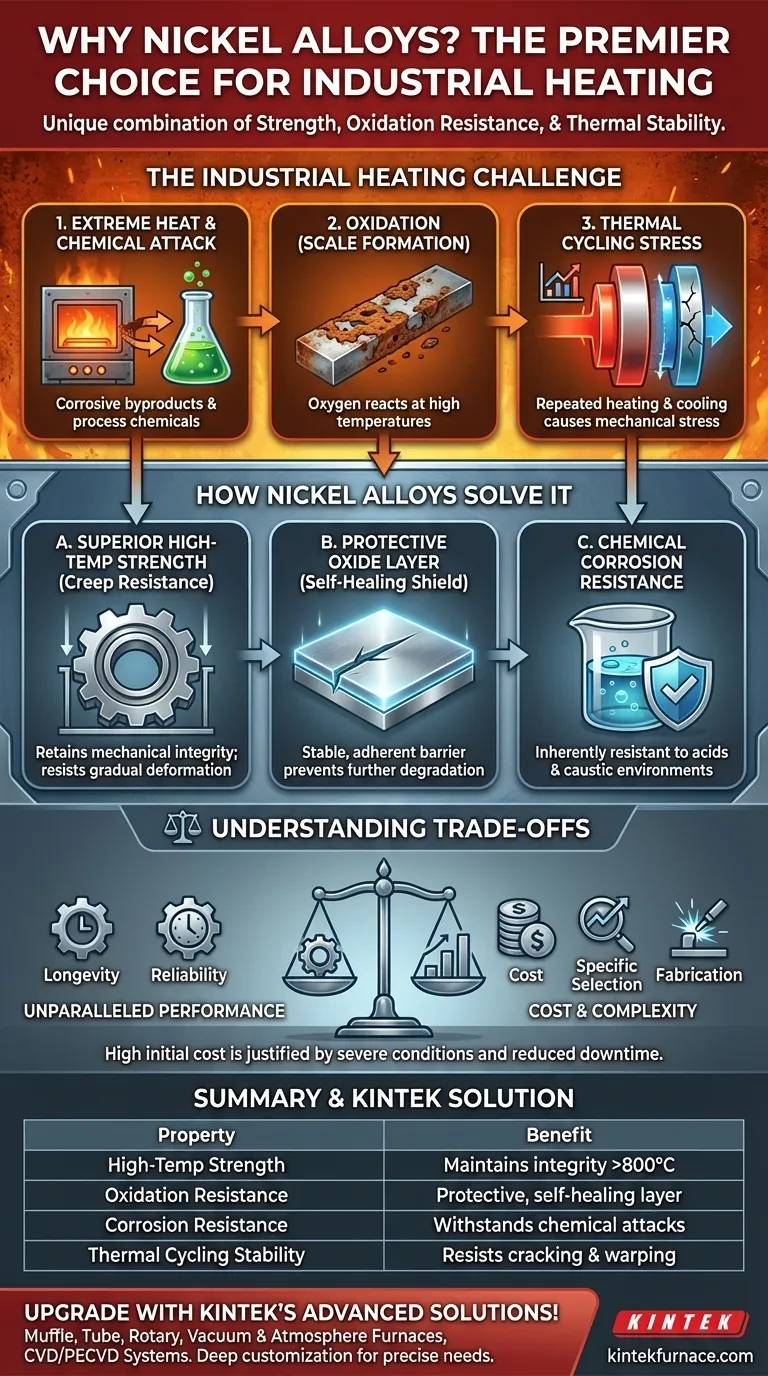
Related Products
- Laboratory Muffle Oven Furnace with Bottom Lifting
- High Temperature Muffle Oven Furnace for Laboratory Debinding and Pre Sintering
- Silicon Carbide SiC Thermal Heating Elements for Electric Furnace
- 1700℃ High Temperature Muffle Oven Furnace for Laboratory
- 1800℃ High Temperature Muffle Oven Furnace for Laboratory
People Also Ask
- What environmental conditions are critical for SiOC ceramicization? Master Precise Oxidation & Thermal Control
- What is the role of a muffle furnace in the study of biochar regeneration and reuse? Unlock Sustainable Water Treatment
- How do you prevent maintenance on a muffle furnace? Extend Lifespan with Proactive Care
- Why is a high-performance muffle furnace required for the calcination of nanopowders? Achieve Pure Nanocrystals
- How do you clean a muffle furnace? Ensure Peak Performance and Longevity


